Innovati ons in Oncology
Q2 2023 | A promotional supplement distributed on behalf of Mediaplanet, which takes sole responsibility for its content
“Innovations can help make life during and after cancer easier to manage for women.”
Yvonne O’Meara, Irish Cancer Society Page 02
www.healthnews.ie
“Combination treatments represent an immediate wave of advances in pharmaceutical medicine.”
Jim McGrath, Irish Pharmaceutical Healthcare Association Page
04


Page 04
Making journeys easier for women after cancer treatment
The Women’s Health Initiative (WHI) began in 2020 as a project aiming to improve overall health and wellbeing for women following a cancer diagnosis.


Afirst-of-its-kind project for Ireland supported by the Irish Cancer Society, the WHI is based across three locations nationwide in Dublin (Mater Misericordia University Hospital, St Vincent’s University Hospital and the National Maternity Hospital), Cork (Cork University Hospital) and Galway (University Hospital Galway).
Issues for women after cancer treatment
Page 06
As well as offering access to in-hospital clinics and virtual support for the many complex — yet often unaddressed — issues facing women during and after their cancer treatment, the WHI includes a range of innovative studies focused on specifically identified areas of need. We hope that it will eventually lead to the development of a national programme for cancer survivors.
In the WHI’s Dublin team led by ynaecological Oncology Professor Donal Brennan at UCD, two studies — the Menopause after Cancer Study (MAC Study) and the Sleep after Cancer Study (SAC Study) — explored the effects of menopause after cancer and how women’s sleep is impacted after treatment.

The Diagnosis Delivery Project, rolled out nationally, sees all newly diagnosed patients who attend a gynaecological clinic receive a diagnosis card with details of their diagnosis, treating doctor and nurse, along with an image of where the cancer is. Patient and Public Involvement (PPI) has been central to all of the research programmes.
Personalised platform for gynaecological cancers
Another novel aspect of the WHI has been the development of the thisisGO.ie platform. Its primary objective is to provide relevant, reliable information to those living with and beyond a gynaecological cancer and/or related genetic conditions. It is a multimedia
platform available for five cancers: cervical, ovarian, uterine, vulvar, vaginal and two inherited cancer predisposition syndromes: BRCA and Lynch syndrome. Healthcare professionals and families can also create specialised profiles on the platform.
As per the needs identified by patients consulted by the project team, thisisGO.ie provides the following:
• Individualised, blended platform, including over 300 pieces of written material and 40 videos, podcasts and patient stories, allowing users to develop a bespoke profile based on where they are in their treatment from diagnosis to surveillance and recurrence

• National directory of services for Irish women living with and after gynaecological cancer
• Symptom tracker
• A ‘decoding the science’ section describing seminal trial results
The platform has over 100 collaborators, including national and international experts who donated their resources and time free of charge. These innovations can help make life during and after cancer easier to manage for women, specific to their personalised needs.

02 READ MORE AT HEALTHNEWS.IE AN INDEPENDENT SUPPLEMENT FROM MEDIAPLANET WHO TAKE SOLE RESPONSIBILITY FOR ITS CONTENT MEDIAPLANET
Manager: Robert Joyce robert.joyce@mediaplanet.com Business Development Manager: Samantha Taylor Managing Director: Alex Williams Head of Ireland:
Bannatyne |
Print
Rayment Content Editor: Angelica Hackett O’Toole | Head of Digital Operations: Harvey O’Donnell Paid Media Manager: Jonni Asfaha Social & Web Editor: Henry Phillips Digital Assistant: Carolina Galbraith Duarte All images supplied by Gettyimages, unless otherwise specified @HealthnewsIE Contact information: uk.info@mediaplanet.com or +44 (0) 203 642 0737 @MediaplanetUK Yvonne O’ Meara UCD Women’s Cancer Survivorship Research Coordinator, Irish Cancer Society IN THIS ISSUE
Project
Ross
Head of
& Design: Thomas Kent Designer: Aimee
“Potential for improved treatment of aggressive types of prostate cancer” Dr Paul Kelly Co-Chair, Cancer Trials
Ireland Genitourinary
Disease Specific Sub-Group
“Digital health: the next frontier in the global fight against cancer.” Antonio Spina Lead, Digital Health, World Economic Forum
To enquire about the programme, or if you are a patient or public member who would like to get involved, contact Yvonne O’Meara on yvonne.omeara1@ucd.ie Want to get involved in a future campaign? Send us an email at uk.info@mediaplanet.com
Multidisciplinary approach to cancer survivorship can help more patients
we often view these challenges from a treating clinician’s perspective. An engineer may see it totally differently — bringing those perceptions together is the best way of coming to an innovative solution,” explains Professor Lowery.
The research is based on the survivors’ experiences. “We involve patients in our research from the beginning, as they are the ones who have experienced cancer and cancer treatment,” she says. “This is the best way to ensure we are doing research that is relevant to them. Similarly, there may be issues clinicians see as an unavoidable side effect of effective cancer treatment that can be hugely challenging to patients.
Improving the care pathway for cancer patients
The University of Galway Women’s Health Initiative team is leveraging expertise in both cancer care and cardiology to develop a care pathway for cancer patients who are at increased risk of developing heart disease during cancer treatment.
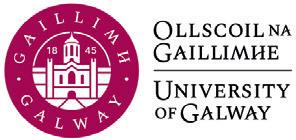
As cancer patients are often able to live longer with modern interventions, a multidisciplinary team in Galway are addressing survivorship, recovery and treatment to ensure the best possible quality of life.
The prognosis for breast cancer patients in Ireland has improved significantly since the introduction of the breast cancer screening programme and improved therapies, including radiation and targeted treatments. The overall prognosis is now 85% — an improvement of 5% in the last 10 years.
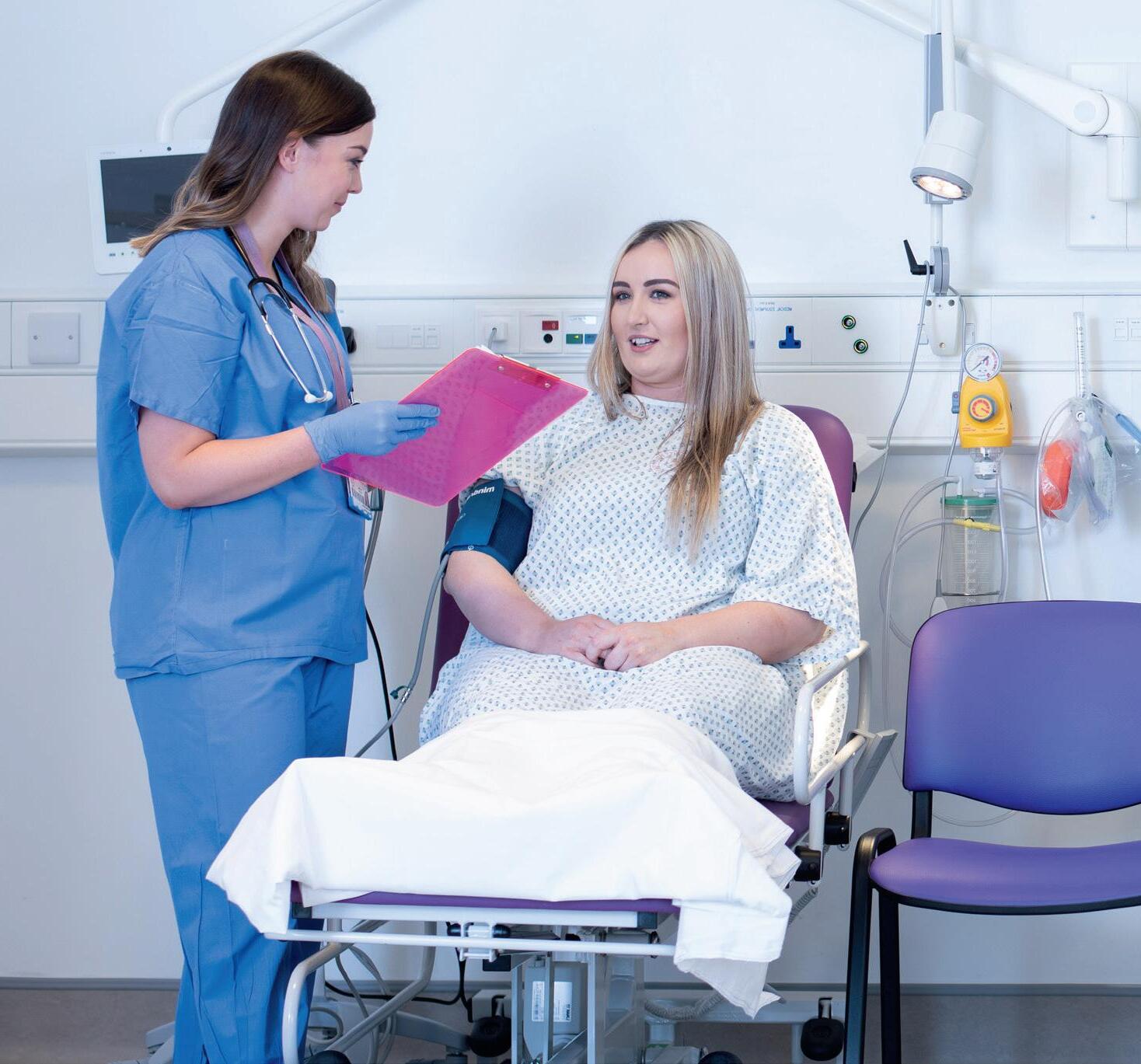
Cancer survivorship and tackling treatment issues
“Most patients diagnosed through the breast cancer screening programme will be diagnosed in the early stages, and we would consider their disease to be curable. There is a five-year survival rate for earlystage breast cancer (stage 1) of 98%,” explains Professor Aoife Lowery, a Consultant Surgeon at Galway University Hospital and Professor in the Discipline of Surgery and clinical lead at the clinical research facility at the newly launched Institute for Clinical Trials at University of Galway.
Professor Lowery is heading research — supported by the Irish Cancer Society Women’s Health Initiative and the National Breast Cancer Research Institute — focused on evaluating pathways for identifying, managing and

overcoming side effects of cancer therapies.
Improved chances of survival mean patients face challenges, not just of diagnosis and disease, but of the effects of the treatment they go through. “We are trying to address survivorship issues,” she explains. “This means understanding the burden of cancer diagnosis and cancer treatment. There’s a broad range of issues that patients can face. A lot of them are related to quality of life and the symptoms, side effects and consequences of cancer treatment.”
Addressing issues through multidisciplinary study
The advantage of the multidisciplinary approach is that people from various disciplines with different perspectives and expertise come together to address a problem. This includes support from dieticians, physiotherapists, translational scientists and bioengineers.
“For example, thanks to Enterprise
Ireland Disruptive Technologies
Innovation funding, I am working with a group of bioengineers and anatomists, scientists and a start-up company developing devices that prevent or reduce the toxic side effects of chemotherapy. As doctors,
“Cardiovascular disease is one of the main killers of women in Ireland,” says Professor Lowery.” We know cancer treatments can have consequences for the heart, so we are developing a specialised care pathway to identify the magnitude of the risk to our female breast cancer patients. This is being done by conducting blood tests, imaging tests and evaluating patients’ quality of life.”
Measuring impact on patient care and outcomes
The research examines the best way to support patients from diagnosis through to survivorship. Professor Lowery concludes: “At University of Galway, we recently launched Ireland’s first Institute for Clinical Trials. The ability to deliver clinical trials is already having an impact because patients who are in the trials are benefiting from the interventions. Also, having an active cancer research environment improves care. “We need to continue to generate evidence that dedicated multidisciplinary survivorship pathways do improve quality of life. We would then like policymakers to fund this important component of clinical cancer care.”
MEDIAPLANET READ MORE AT HEALTHNEWS.IE 03 AN INDEPENDENT SUPPLEMENT FROM MEDIAPLANET WHO TAKE SOLE RESPONSIBILITY FOR ITS CONTENT
Find out more at universityof galway.ie
Paid for by University of Galway
Professor Aoife Lowery Consultant Surgeon at Galway University Hospital and Associate Professor in the Discipline of Surgery, University of Galway
We involve patients in our research from the beginning, as they are the ones who have experienced cancer.
WRITTEN BY James Martin
Image provided by University of Galway
Jim McGrath IPHA Director, Commercial Policy
Clinicians are increasingly realising the potential of combination therapies to address high unmet medical needs across several disease areas.

Combination treatments are where two or more individual medicines are combined into a single treatment regimen. They represent an immediate wave of advances in pharmaceutical medicine. They have shown strong potential to improve patient outcomes by targeting different disease pathways synergistically — preventing tumour growth or the spread of cancer throughout the body.
Challenges in launching combination therapies
Combination therapies will hopefully become the norm in cancer treatments while benefits will also accrue in many other therapy areas. More than 50 combination medicines will be launched in Ireland between now and the end of the decade. However, making these medicines available to patients brings with it many challenges.
For the most part, the systems of assessing medicines throughout Europe were initially designed around single-therapy treatments (monotherapies). The loose working theory of many reimbursement systems is that if — when assessed — a medicine meets the relevant pricing criteria, it will then secure reimbursement. Each use of a single medicine is based on the same price. In Ireland, this criterion typically — but not always — hinges on a pricing threshold of €45,0000 per quality-adjusted life year gained (QALY).
Adjusting prices for different uses Advances in combination treatments, however, present significant challenges to health systems and pharma companies.
If one therapy in a combination is priced at or above €45,000 per QALY, then any combination of treatments above that value would exceed the pricing threshold. This is even if one of the medicines were to be given away free of charge.
The method around this is to set different prices for different uses of the medicine. To reduce health system expenditure and to maximise the use of combination therapies for patients, systems should have the flexibility to implement discounts on combination usage. Otherwise, there will be no incentive to bring the combination medicine to market — and ultimately to the patient.
However, in Ireland, we currently do not have the systems to monitor different uses of the same medicine at different prices based on their indication.
Making combination therapies accessible Companies could get around this by coordinating a price for their combination treatments. However, competition law prevents such cooperation currently. The best solution is for HSE, the pharmaceutical industry and competition authorities to develop a framework for appropriate collaboration. All sides owe it to patients to make sure the Irish health system realises these benefits.
Dr Paul Kelly Consultant Radiation Oncologist & Medical Director, Bon Secours Radiotherapy Cork in partnership with UPMC Hillman Cancer Centre & Co-Chair of the Cancer Trials Ireland Genitourinary Disease Specifi c Sub-Group
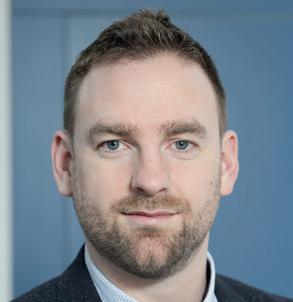

An ongoing trial known as ‘Darolutamide Augments Standard Therapy for Localised Very High-Risk Cancer of the Prostate’ (DASL-HiCaP) can potentially benefit men with aggressive prostate cancer types in addition to standard treatment.
DASL-HiCaP is a prostate cancer trial for patients with aggressive types of prostate cancer that remain confined to the prostate area. The purpose of this study is to see if a new drug — combined with modern radiotherapy and hormonal treatment — can improve outcomes for people with localised prostate cancer that is considered to have a high risk of recurrence.
Improving treatment for aggressive prostate cancer
The trial is randomised and controlled. This means that, in addition to the best standard treatments, half the participants in the trial will receive the new drug, and the other half will receive a placebo — a substance that has no active medicine in it. To be clear: All patients receive the current standard of care plus or minus the drug being studied.
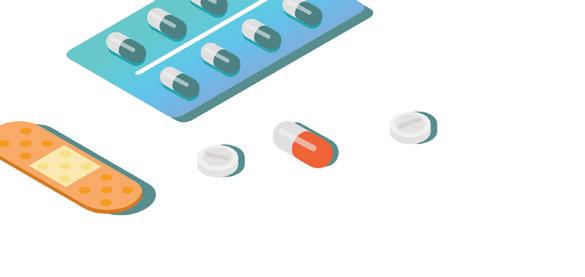

The main aim of the study is to see if the addition of the study medication (darolutamide) to standard treatment is better for improving the outcomes of people with this type of prostate cancer compared to standard treatment. The drug has already been shown to be beneficial in men with advanced prostate cancer, and the question to be answered by this trial is: Will this drug improve the rate of cure for patients with localised but aggressive prostate cancer?
Additional outcomes the trial aims to determine
• The impact of the new medicine on prevention of recurrence and survival
• How safe the new treatment is
• Whether the medication is cost-effective
• The effects of the new treatment on quality of life
• Differences in the costs of care for people on the new treatment
• Tests that might identify people who are more or less likely to benefit from this kind of treatment

Clinical trials ongoing in sites across Ireland
The study opened here in the summer of 2021 and has recruited participants at nine sites around the country: Bons/UPMC Cork, St. Luke’s Rathgar, Mater Misericordiae University Hospital, Mater Private Hospital, Tallaght University Hospital, SLRON at St. James’s Hospital, Cork University Hospital, Galway University Hospital, and the Beacon Hospital.
The trial has now recruited over 1,000 patients globally and is on target to complete recruitment by the end of June this year. This includes a significant contribution of 76 participants, so far, randomised across Ireland and the UK. If successful and properly distributed, it can improve outcomes for prostate cancer patients and complement existing treatment.




04 READ MORE AT HEALTHNEWS.IE AN INDEPENDENT SUPPLEMENT FROM MEDIAPLANET WHO TAKE SOLE RESPONSIBILITY FOR ITS CONTENT MEDIAPLANET
Appropriate distribution and pricing can make combination therapies more ac cessible
Potential for improved treatment of aggressive types of prostate cancer
Systems should have theflexibility to implement discounts on combinationusage.
Will this drug improve the rate of cure for patients with localised but aggressive prostate cancer?
Biology and medicine are morphing into data-driven sciences. The dream of personalised medicine — finding the right medicine for the right patient at the right time — is coming into reach.

This digital transformation is particularly visible in oncology, where genome sequencing in the clinic has shown the importance of data analysis in enabling clinical decision-making, and the development of computational models that allow us to interact with and do bespoke analyses of data. At the leading edge, cancer researchers at UCD have received strategic investment in key interdisciplinary projects covering fundamental biomedical science to computational biology, data science and AI.
Using the power of data for personalised medicine
UCD-based research centre Systems Biology Ireland (SBI), led by international leader in personalised medicine Prof Walter Kolch, is leading the charge towards clinical
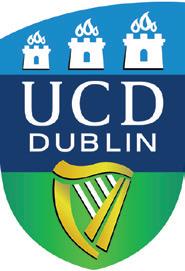
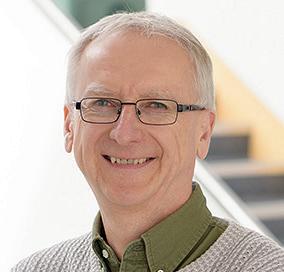
adoption of digital twin models (DTMs) in cancer treatment.
SBI’s approach is to analyse computer models of patients and understand every individual’s tumour, enabling the design of the best therapeutic intervention via computer simulation. “The goal is for real cancer patients to receive the optimum treatment — the treatment most likely to work on their cancer with fewer harmful side effects,” says Prof Kolch.
This endeavour has been boosted by national investment in groundbreaking consortium Precision Oncology Ireland, led by SBI, which unites the efforts of five universities and associated hospitals, six cancer charities and seven industry partners.
Leveraging research networks
UCD’s Professor William Gallagher co-leads the All-Island Cancer
Research Institute (AICRI), which — together with colleagues in the US and Europe — is building a global collaborative network to evolve the research and innovation (R&I) ecosystem in cancer research.
“As a community, we need to overcome narrow, single institution mindsets so we can build sufficient critical mass, inclusively — to gain a better understanding of cancer and develop more personalised treatment options to ease suffering and save lives,” explains Professor Gallagher. This virtual institute, involving 10 academic institutions and linked clinical centres, provides an overarching framework for cancer research from discovery to implementation across the island of Ireland — where one in two people will develop cancer during their lifetime.
So far, AICRI has attracted funding to pursue ‘compelling ideas’ from the cancer research community in the areas of personalised cancer medicine, liquid biopsies and eHealth, including a doctoral and post-doctoral training programme in personalised cancer medicine called AICRIstart.
“This project will train the next generation of cancer researchers in cutting-edge scientific approaches, with an emphasis on inter-institutional collaboration,” concludes Professor Gallagher. “AICRIstart will provide a roadmap of even greater collaboration.”
Barriers to accessing a successful targeted liver cancer treatment within Irish healthcare system
SIRT is routinely used in the USA, UK and throughout Europe for the treatment of many liver tumours. In Ireland, however, there is no national funding agreement for SIRT, leaving patients with fewer treatment prospects.
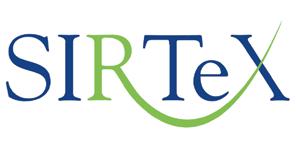
Selective internal radiation therapy (SIRT) is a targeted treatment for some liver tumours that delivers millions of tiny radioactive beads, called SIR-Spheres, directly to the site of the cancer.
Liver cancer treatment improves quality of life
Dr Cormac Farrelly, interventional radiologist at Mater Misericordiae University Hospital Dublin, explains:
benefit massively. “Many patients are weakened from extensive chemotherapy, but this treatment is generally administered only once or twice and does not leave the patients needing to isolate, as it is very accurate at only targeting cancerous tumours.”
Dr Cormac Farrelly Consultant Interventional Radiologist
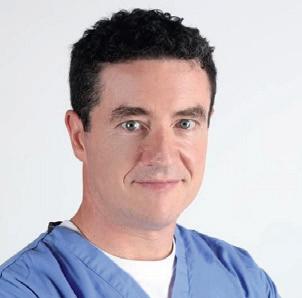
 Mater Misericordiae University Hospital
WRITTEN BY James Martin
Mater Misericordiae University Hospital
WRITTEN BY James Martin
“The treatment has been around for about 20 years. Patients may have tumours that start in the liver — known as primary liver cancer (Hepatocellular carcinoma) — or they may have tumours that have spread to the liver from a cancer in the bowel — which is known as secondary liver cancer or metastases. Patients with metastatic disease that may benefit from SIRT are not generally surgical candidates, so it’s about aiding quality of life. Results depend on how far the cancer has spread when they get the treatment.
SIRT can also be used for used for hepatocellular carcinoma that cannot be surgically removed, where the objective is to shrink the tumour and potentially make it surgically removable.”
Brenda Byrne, principal physicist at Mater Misericordiae University Hospital, says benefits include selective injection, so healthy liver is spared, and the ability to tailor the dosing to each patient’s disease.
Alternative to chemotherapy that directly targets tumours However, Dr Farrelly adds that patients who found chemotherapy difficult to manage or ineffective may also
Unlike traditional radiotherapy delivered from outside the body, SIRT allows delivery of the radiation directly to the tumour, allowing for higher doses and less damage to surrounding healthy cells. This is achieved by using a catheter placed in the femoral artery to feed the radioactive beads directly into the liver blood supply.
Equity of provision of treatment
Despite SIRT being routinely publicly funded in the UK, no funding arrangements are in place in Ireland. Consequently, the hospital providing the treatment is also the sole bearer of the cost of the treatment in the current environment. This is unsustainable in the long-term.
Brenda, who ensures the radiation dose is tailored to each patient to maximise efficacy and safety, says: “There are other hospitals in Ireland that could actually do the treatment. Yet, we are the only ones in Ireland using SIR-Spheres at present. Other hospitals can’t build the resources or expertise because they can’t get funding.” If Ireland invests in this treatment, more people with liver cancers could benefit.
Brenda Byrne BA MSc Principal Physicist and Radiation Protection Adviser, UCD Assistant Clinical Professor
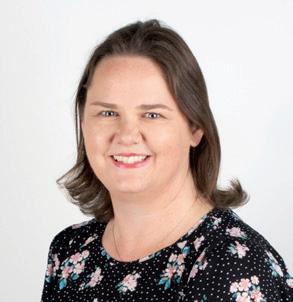
MEDIAPLANET READ MORE AT HEALTHNEWS.IE 05 AN INDEPENDENT SUPPLEMENT FROM MEDIAPLANET WHO TAKE SOLE RESPONSIBILITY FOR ITS CONTENT
Enabling personalised medicine for cancer patients across the island through digital revolution
Find out more at ucd.ie/sbi aicri.org
Prof Walter Kolch Director of Systems Biology Ireland, UCD
Paid for by University College Dublin
Prof William Gallagher Full Professor of Cancer Biology at UCD, Co-Lead of the All-Island Cancer Research Institute
Find out more at sirtex.com/eu
for
Paid
by Sirtex
Patients who found chemotherapy di cult to manage or ine ective may also benefit massively.
Digital health: the next frontier in the global fight against cancer
With one in six deaths still caused by cancer, experts are searching for digital health innovations that could one day turn the tide in the fight against it.
The rise of digital and data-driven technology in healthcare — such as artificial intelligence (AI), the internet of things (IoT) and robotics — could offer unprecedented potential in the fight against cancer.
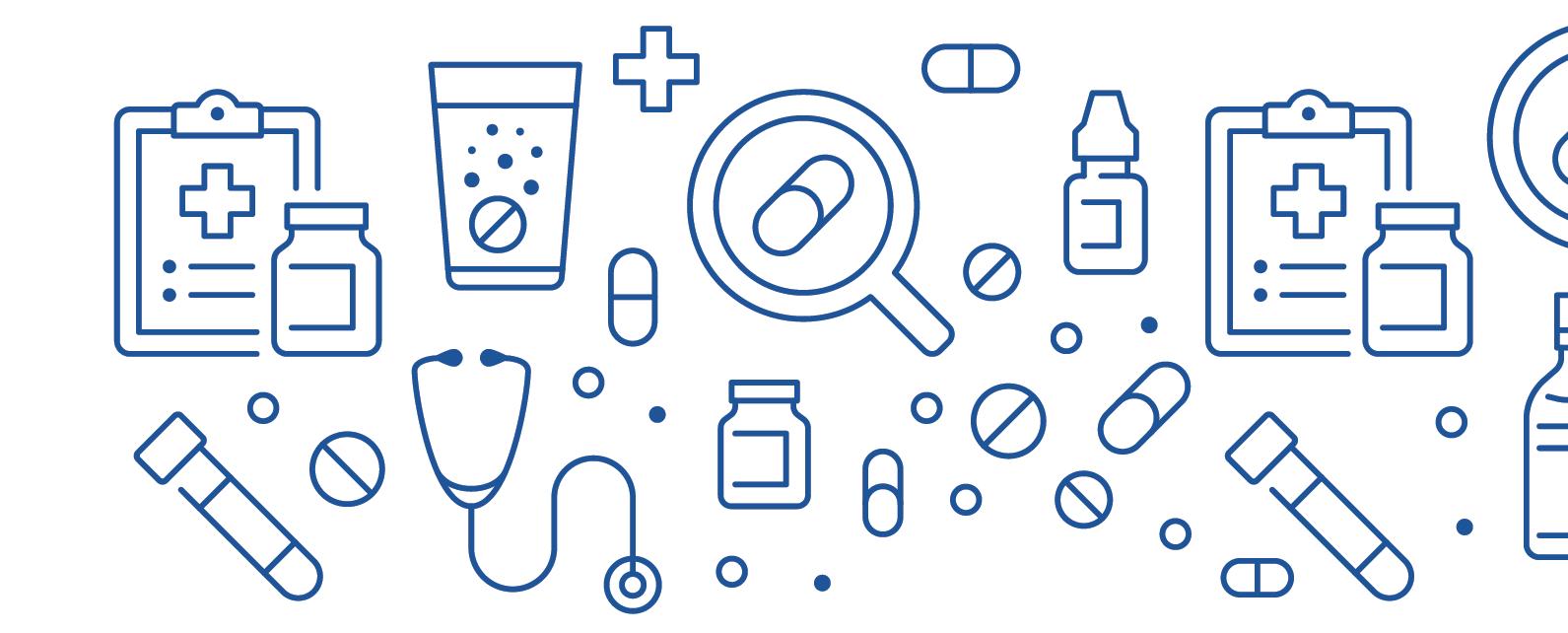
Digital health computing cancer cures
The rise of computational tools has unlocked new approaches to treatments. In particular, AI and machine learning hold the potential to revolutionise how drugs are matched to patients, taking personalised cancer care to the next level. Such technologies could also drastically transform the timeline for the development of new drugs, making it a matter of months rather than years.
Going beyond the pill: prevention and diagnosis

Beyond developing and integrating new treatments, AI could improve early detection and prevention rates. Missed or incorrect medical diagnoses are a serious concern, and oncology is one of the highest-risk specialities. Research institutions are applying the latest AI advancements to diagnose common cancers, where algorithms can spot difficult-todetect cancers more effectively than humans.
However, authorities must ensure the responsible use of new
Rare cancer management can continue to improve with multidisciplinary research


Rare cancer is considered as such when the number of people diagnosed is equal to or less than six new cases per 100,000 people in a year.
The Irish Association for Cancer Research (IACR) is an All-Ireland nonprofit organisation for scientific and healthcare researchers across cancer disciplines. Our overarching aim is to improve the lives of people living with and beyond a cancer diagnosis through multidisciplinary research.
technologies through regulatory mechanisms and ethical guidelines, given potential safety concerns with automation and security concerns with patient data.
Digitising the patient journey
New digital technologies may transform health outcomes and improve the patient experience. For instance, digital tools have been employed to help patients and families manage some aspects of cancer care from home.
Emerging evidence even suggests that virtual reality could become a potential tool for cancer care. Some virtual solutions for pain management have already received FDA approval; similar technologies could potentially be translated into oncology.
Expanding global access to care for all
With approximately 70% of cancer deaths occurring in low and middle-income countries (LMICs), new technologies must reach the most vulnerable. However, LMICs face roadblocks to digital health uptake, such as limited financial resources. International funding and support are key to bridging the technology and health gaps. As digital innovations in the fight against cancer advance, global leaders must ensure that digital health helps produce a more equitable and sustainable global health system.
Rare cancer research and rare subtypes of common cancers
One area of focus is rare cancers, such as ovarian cancer, with approximately 600 cases per year on the island of Ireland and ranked fourth among cancer deaths. IACR researchers also focus on rare subtypes of common cancers.

One example is a subtype of breast cancer, called triplenegative, due to its molecular features. While this breast cancer accounts for 15–20% of all breast cancer cases, it accounts for almost half of all breast cancer deaths. Another example is neuroendocrine lung cancer which accounts for 1–2% of lung cancer cases.
These rare subtypes may need to be managed differently from other subtypes of the same cancer to maximise patient outcomes. Furthermore, diagnosis of these cancers can be challenging given low public awareness of the disease and/or the associated symptoms. Importantly, doctors, especially outside larger/regional centres, may not frequently or ever manage a patient with these rarer cancers.
Challenges of managing rare types of cancer
Research — to enable better diagnosis, management and outcomes — for rare cancer can be challenging given the differences between each patient and the low number of cases. This affects the success of clinical trials designed to help patients because the trial may be required to run over longer periods or include more centres to recruit the number of patients required for meaningful interpretation of any findings.
One potential way to help overcome these challenges is through collaboration and consolidated approaches such as national genomics studies. For example, initial findings from analysis of genomes from >2,000 families of newborns with rare diseases — including cancer — have helped determine the underlying genetic variation. This information can impact diagnoses and have immediate benefits for the clinical decisions made during treatment. Through the Higher Education Authority initiative, many All-Ireland research programmes are currently underway, bringing together researchers to tackle these rare cancers. This collaborative approach is embraced and encouraged by the IACR through our annual conference as well as funding calls to continue to bring together the best researchers on the island to conquer cancer.
06 READ MORE AT HEALTHNEWS.IE AN INDEPENDENT SUPPLEMENT FROM MEDIAPLANET WHO TAKE SOLE RESPONSIBILITY FOR ITS CONTENT MEDIAPLANET
AI and machine learning hold the potential to revolutionise how drugs are matched to patients.
Dr Kellie Dean IACR Junior Council Treasurer Lecturer and Principal Investigator, School of Biochemistry and Cell Biology, University College Cork
Dr Niamh Buckley IACR Grants and Awards Offi cer Reader In Personalised Medicine and Pharmacogenomics, Queen’s University Belfast
Learn more at iacr.ie
Antonio Spina Lead, Digital Health, World Economic Forum
All-Ireland cancer research boost can help thousands of patients
All-Ireland €4 million research is testing whether minimally invasive blood tests may complement — or even replace — surgical biopsies for cancer diagnosis and treatment.
The All-Ireland Cancer Liquid Biopsies Consortium (CLuB), an emerging hub of excellence, was set up last autumn, supported by the Shared Island Fund and overseen by the Higher Education Authority. It is a groundbreaking collaboration building on internationally recognised leadership in cancer research at Trinity College Dublin, Queen’s University Belfast and the University of Galway.
All-Ireland cancer research promoting better testing combinations

of Ireland to the study. Within four years we aim to have identified new, better combinations of testing by studying several different entities in the same blood samples — potentially coming up with new diagnostics and helping to predict treatment response.”
“We are hoping to develop some industry partnerships as well because — while universities and hospitals can do excellent research — there are companies that are experts at creating testing kits.”
Researching efficacy of blood testing
“Tissue biopsies, aside from being invasive, are much more expensive than blood tests. They also have limitations. For example, if a tumour has been sampled, it’s only sampling parts of the tumour. Tumours are heterogeneous — in other words, every cell of the tumour is not the same. Even if more samples are taken, they are not necessarily representative of the whole tumour. We are looking to prove that what’s released from all those cells will be found in the blood.”
She stresses: “We are not claiming that tissue sampling would never be needed but that blood testing could, in some cases, replace tissue sampling — and in other cases, complement it.”
Experts listening to patient advice for better outcomes
This multidisciplinary research is looking at thousands of patient samples. “CLuB brings together recognised international experts in their particular areas that have never previously had a mechanism to work together,” explains Professor O’Driscoll.
WRITTEN BY James Martin
Lorraine O’Driscoll, Professor of Pharmacology and Biomedicine at Trinity College Dublin and Research Director of Trinity St James Cancer Institute, is heading the study. She says: “We are bringing together the necessary expertise across the whole


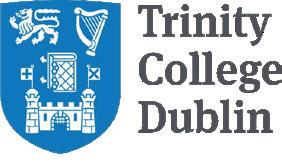
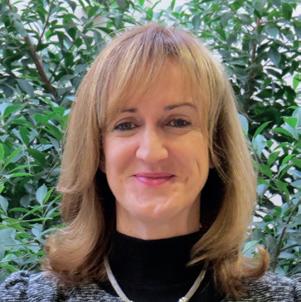
“We are studying what has been released from the tumour into the blood sample,” explains Professor O’Driscoll. “For example, you diagnose that the patient has cancer and hopefully use the information to help select the optimal treatment.”
Research is currently on lung, ovarian and breast cancer, with plans to expand to other cancer types. “Patients are advising on our research all of the time. Our main focus is to achieve better care and outcomes for cancer patients,” she concludes.
Ambitious goals inspire a recently established digital cancer research centre
The University of Limerick Digital Cancer Research Centre is a growing research centre of excellence, launched in September 2021. The centre has ambitious goals and has attracted almost EUR6 million in funding in its first year.

Experts driving cancer research forward Clinical director, Prof Ruth Clifford and academic director Prof Aedín Culhane believe creating a diverse interdisciplinary environment will be central to the centre’s success.
“Partnering with our patients, we will inspire multidisciplinary academic, clinical and industry partnerships between the University of Limerick and University Hospital Limerick to catalyse excellence in cancer research,” says Clifford.


Advanced research tools for mapping cancer cells
Clifford and Culhane gained much of their cancer research experience overseas where they saw first-hand the importance of translating academic discovery to clinical impact and are leveraging cutting-edge innovations such as spatial single-cell biology, biomaterials engineering and digital health data science and AI technology to yield new insight in cancer biology and treatments to inform clinical care. “The research tools we have now are very different to what we had five years ago,” Clifford says.
“Today, we can get highly detailed molecular data on every, single cancer cell. It means we can take the molecular portraits of that cell and direct medicines more precisely,” reveals Culhane, professor of cancer genomics.
Creating new detailed maps of cancer
State-of-the-art technologies are measuring and quantifying tens of thousands of molecules in individual cells. Engineers are developing optical and nanosensors to precisely study real-time cell processes and develop minimally invasive, optical sensors to monitor dosage and efficacy of radio and chemotherapy — better tailoring treatment to each patient.
“These technologies generate large volumes of data, and interpretation requires advanced computational and statistical methodology. Data scientists, software engineers, statisticians and experts in AI/machine learning are critical to the centre,” says Culhane, a leader and developer in Bioconductor — a genomics software used by over 1 million data scientists.
Global partnerships are essential
Translating the immense volume of data into effective treatments requires collaborations. Partnering with Queens University Belfast, the eHealth-Hub for Cancer will train students in best international practices of securely sharing and analysing federated clinical data to further understand cancer at scale. The Limerick Digital Cancer Research Centre is also partnering with Irish and European organisations to support Genomic Data Infrastructure.
“Access to a large data pool brings valuable benefits to patients. When you have large cohorts, you can ask questions that you couldn’t ask before,” Culhane says. “Data opens up new and exciting cancer research opportunities in Ireland and can connect us to ground-breaking international research projects, bringing deeper insights and potentially driving discovery of life-changing treatments.”
MEDIAPLANET READ MORE AT HEALTHNEWS.IE 07 AN INDEPENDENT SUPPLEMENT FROM MEDIAPLANET WHO TAKE SOLE RESPONSIBILITY FOR ITS CONTENT Paid for by Trinity College Dublin
To learn more, visit clubcancer.ie/
Professor Lorraine O’Driscoll Professor of Pharmacology and Biomedicine, Research Lead of the Trinity St. James’s Cancer Institute, Vice-President of the Royal Irish Academy
A digital research centre is partnering with patients and industry to deliver cancer research supported by cutting-edge data science and AI technology.
Prof. Ruth Clifford Consultant Haematologist and Director of Cancer Research, University Hospital Limerick
Find out more at ul.ie/limerick-dcrc
Prof. Aedín Culhane Professor of Cancer Genomics in the School of Medicine and Director of the Limerick Digital Cancer Research Centre, University of Limerick
Paid for by University of Limerick
Barrett’s oesophagus can progress into oesophageal cancer if not managed
A small number of people (less than 1%) with Barrett’s oesophagus can develop oesophageal cancer. Therefore, this condition must be regularly monitored to ensure cancer prevention.
The National Barrett’s Oesophagus Registry and Biobank were established in 2009 to meet the Oesophageal Cancer Fund’s aim of preventing Oesophageal Cancer through early detection.
Barrett’s oesophagus can pose cancer risk
Barrett’s oesophagus is a condition that is caused when persistent or long-term acid reflux (heartburn) damages the inner lining of the oesophagus (food pipe). Over time, because of this damage, the normal cells that line the oesophagus can become abnormal. Although the condition itself is not cancerous, it is known as a pre-cancerous precursor — meaning the risk of developing oesophageal cancer is slightly higher.
Since 2009, over 9,000 patients have been recorded on the National Barrett’s Registry in Ireland. The Registry helps medical professionals identify at-risk patients earlier and regularly track their progress using endoscopies and bioscopies.

Early, effective treatment following diagnosis
Cellular changes such as dysplasia and or cancer can be diagnosed and treated much earlier. The data manager records and monitors a range of follow-up data for all Registry patients across the six hospital sites.
Barrett’s patients who show progression in their disease are offered radiofrequency ablation (RFA) therapy — a highly effective HALO procedure that destroys
to
Experts
say
Dr Su W Maung Consultant Haematologist, Mater Misericordiae University Hospital, Dublin Secretary/ Treasurer, Haematology Association of Ireland Eva Szegezdi Associate Professor in Biochemistry Director, Blood Cancer Network Ireland Co-ordinator INTEGRATE Doctorate Programme in Integrative Genomics,University of Galway, Ireland
Chimeric antigen receptor T-cell (CAR-T) therapy is a form of cellular immunotherapy known as adoptive cell transfer, targeting tumourassociated antigens in cancer cells. CAR-T cells are typically developed to recognise and attack a patient’s harmful cancer cells. Like CAR-T, natural killer (NK) therapy is a type of cellular immunotherapy. Unlike CAR-T, in addition to a specific antigen, CARNK cells can also identify cancerous cells via a range of activating receptors.
CAR-T extending lives of cancer patients
Dr Su Maung, consultant haematologist at the Mater Misericordiae University Hospital and current Secretary/Treasurer at Haematology Association of Ireland, says CAR-T is proving successful in clinical trials.

“In Ireland, we have approved CAR-T cell therapies for certain subtypes of B cell lymphoma and leukaemia. Clinical trials has an overall response rate up to 82%, which is extraordinary. This includes patients who have a complete response — meaning, they are still alive and well, thanks to their treatments.

“We believe the very high response rates are due to the fact patients are receiving a living drug that is proactively finding harmful cells and killing them.” However, Dr Maung believes there are still limitations in delivery of service, which must be expedited for patients to better access treatment.

diseased tissue and allows healthy, new tissue to regenerate.
Oesophageal cancer research using samples
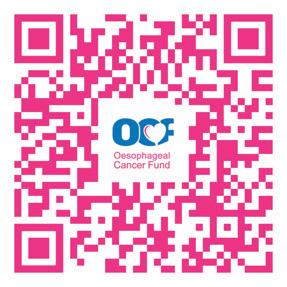
The National Barrett’s Biobank operates in tandem with the Barrett’s Registry. Tissue and blood samples from consenting Barrett’s patients are collected, stored and used for vital patient-focused research that is helping medical professionals to better understand what factors drive the progression to oesophageal cancer.
To date, the Oesophageal Cancer Fund has provided over €2 million in funding towards the National Barrett’s Registry and biobank, linking six national hospitals — St. James’s, St. Vincent’s, Beaumont, Mater Misericordiae, Dublin, Mercy Hospital Cork and University Hospital Galway. Since 2020, the Oesophageal Cancer Fund has co-funded — with Science Foundation Ireland — the National Barrett’s Registry and Biobank.
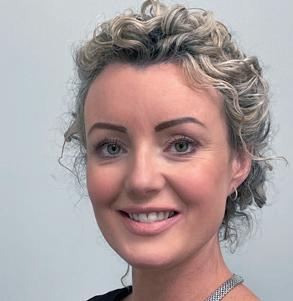

Getting help if experiencing symptoms
If you’re experiencing the main symptom of Barrett’s oesophagus, which is persistent acid reflux (heartburn), over a long time or notice yourself constantly reaching for heartburn medication, then consult your GP. Symptoms may also include regurgitation; nausea and pain in the upper abdomen; chronic sore throat.
“We would also like to be able to better manage the effects of CAR-T treatment which includes toxicity and infections.”
More adaptable ‘live’ treatment option
Meanwhile, similar to CAR-T cells, NK cells act as ‘living drugs,’ and they can be from any donor. They are then genetically engineered and processed for cancer treatment.
Eva Szegezdi, Director of Blood Cancer Network Ireland (BCNI) at the University of Galway, explains: “The drugs currently used for blood cancers have serious side effects as they also kill healthy cells. These drugs also get eliminated from the body very quickly. Whereas, live immune cells are adaptable and can persist for a long time.”
Genetic engineering by BCNI is focused on generating therapeutic CAR-NK cells, which can eliminate cancerous cells and without affecting healthy ones. “Currently, we test these NK cells on biobanked patient samples. When we progress further, we will engage in clinical trials.” She expects the first trial in Ireland to be with 20 or 30 patients. “If that is successful, it will probably become an international trial.”
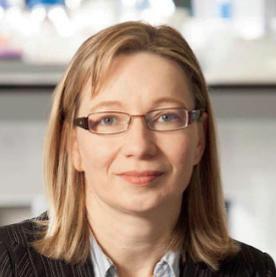
Potential for improved cancer treatments
08 READ MORE AT HEALTHNEWS.IE AN INDEPENDENT SUPPLEMENT FROM MEDIAPLANET WHO TAKE SOLE RESPONSIBILITY FOR ITS CONTENT MEDIAPLANET To find out more about the work of the Oesophageal Cancer Fund and the National Barrett’s Registry and Biobank, scan the QR code. Paid for by Oesophageal Cancer Fund
Christine Littlefi eld
CEO, Oesophageal Cancer Fund
that ongoing trials surrounding CAR-T and NK
immunotherapies
With these findings and trials ongoing, patients in Ireland could potentially have access to more targeted treatment options, alongside traditional chemotherapy treatment. the potential to revolutionise cancer
cell
have
care.
Find out more at haematology ireland.ie Paid for by Haematology Association of Ireland (HAI) and Blood Cancer Network Ireland (BCNI)
Looking
our immune system: promising advances in cellular immunotherapies
WRITTEN BY James Martin
NK cells act as ‘living drugs,’ and they can be from any donor.


























 Mater Misericordiae University Hospital
WRITTEN BY James Martin
Mater Misericordiae University Hospital
WRITTEN BY James Martin





















